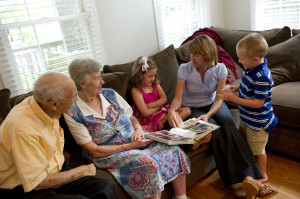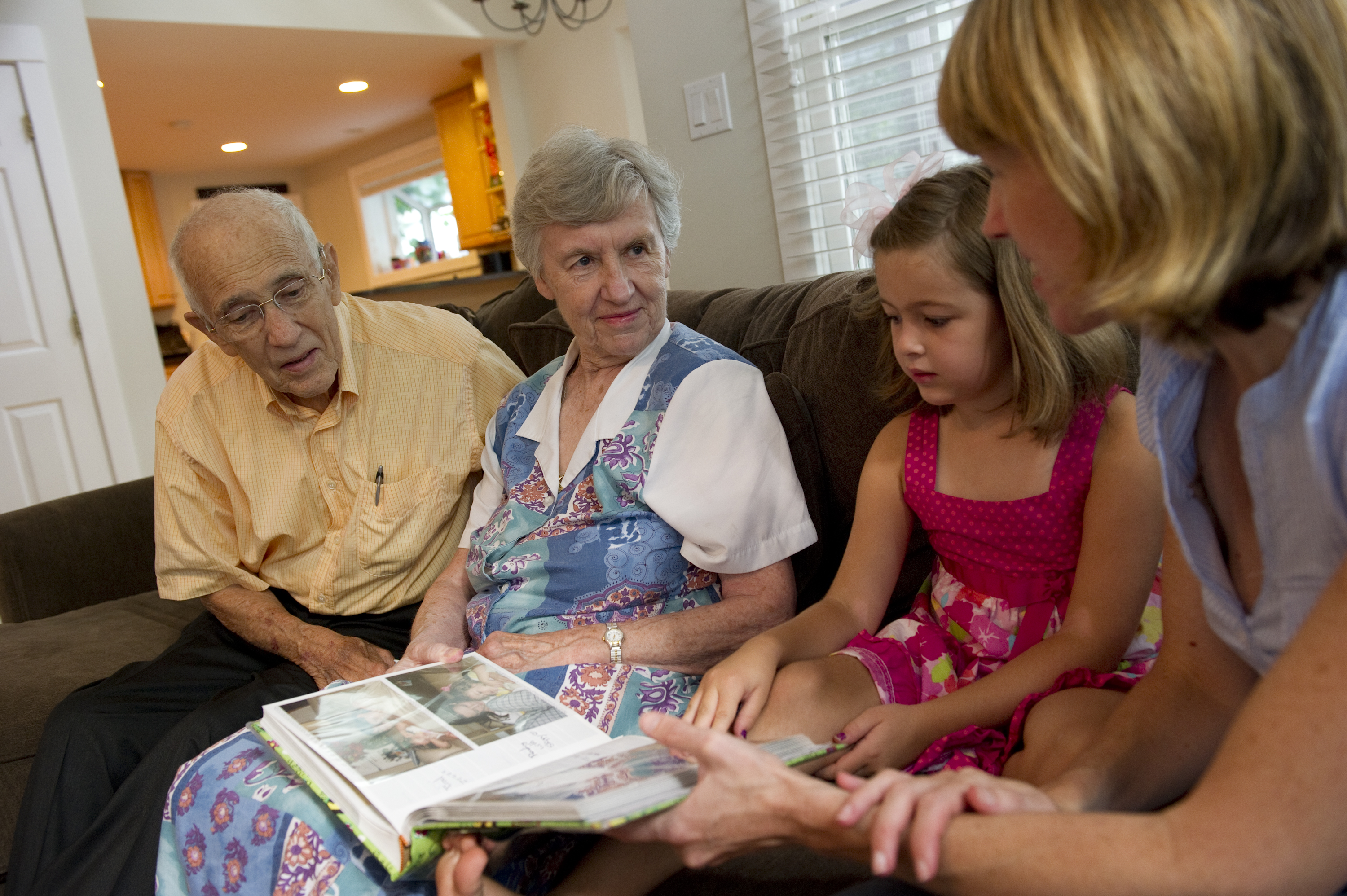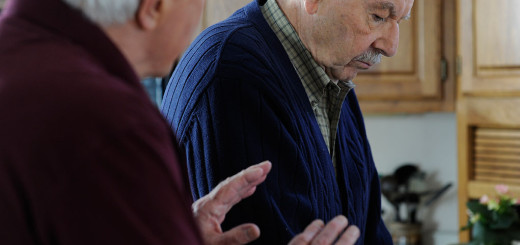Family Dynamics – Facing a New Normal, Together
 When a loved one is diagnosed with Alzheimer’s disease there will almost certainly be issues relating to family relationships. First, normal roles change. A son suddenly becomes his mother’s caregiver, reversing their lifelong roles. Over time, a couple’s relationship changes as caregiving becomes the priority. Life plans, retirement plans, all the things you put off for the future, those things change and may in fact disappear completely. Roles of the caregiver change within their own family as well; a caregiver’s children may feel infringed upon when Grampa needs mom’s constant attention and focus.
When a loved one is diagnosed with Alzheimer’s disease there will almost certainly be issues relating to family relationships. First, normal roles change. A son suddenly becomes his mother’s caregiver, reversing their lifelong roles. Over time, a couple’s relationship changes as caregiving becomes the priority. Life plans, retirement plans, all the things you put off for the future, those things change and may in fact disappear completely. Roles of the caregiver change within their own family as well; a caregiver’s children may feel infringed upon when Grampa needs mom’s constant attention and focus.
On top of these relationship changes, sibling and extended family relationships can be stressed. Old family relationship issues may re-surface or family members may revert to their old childhood roles. If you are the youngest sibling, your vote in Dad’s caregiving might not be considered in the decision hierarchy. Gender stereotyping may occur, with the daughter assumed as the primary caregiver regardless of whether she might be employed full-time or have her own family to take care of. All of this has to be dealt with to form an effective caregiving team. The reality is that you need one another.
It is important in developing a caregiving team that you try and include everyone’s views and feelings; and also evaluate their skills, strengths and life situation in identifying their role in the overall care plan. By broadening ownership of the care responsibilities you will help prevent the burn-out of the primary caregiver. Look at the full scope of work that must be done, there is care work as well as planning related to legal and financial issues, and more. If someone is good at finances and details, assign them the financial responsibilities. If a sibling is long-distance, make sure to involve them in family discussions and provide specific ways they can help. Have them call Mom once a week, help with costs, or follow-up on insurance matters. Create a Care Team Calendar and re-evaluate it on an ongoing basis. Be sure to include friends and other community resources as potential help.
Recognize that family issues that were already present are likely to worsen, and you will need to negotiate and communicate exceptionally well and often. Everyone needs to be kept posted on the “new normal” as it evolves, as outside of the primary caregiver, others may not be sensitive to recent changes and the resultant impact on care requirements. Join an Alzheimer’s family support group to help reinforce coping skills and to educate your caregiving team on the disease and caregiving skills. You may find that you want to involve a 3rd party to provide a neutral voice to the discussions, perhaps a geriatric care manager, a long-time family friend or religious contact. Some families find that family therapy can be helpful.
Sometimes you simply won’t be able to get assistance from certain family members. Caregiving is tough work and not everyone can do it. Family members may be suffering from their own anger, guilt or denial. Don’t get angry if you can’t get someone to engage, but don’t do everything yourself, either. There is a lot of support available so you don’t have to take this journey alone.
Click here for more caregiver tips and expert advice from Family Care Specialist Stefanie
Blog written by Alzheimer’s Association Volunteer Diane Blum


















this is great advice if the person in complete charge is willing to do it .
This is not the case in my situation. there is a total lack of information towards 2 of the siblings . I am one of them .
I am also 1.5 hrs away
when I suggested a family meeting it was ignored
How does one go about making them open up ?
I want to see the POA I want to see the will, I want to have input in my mothers care .
Yes, Vern, it can be very challenging if the family member with control over someone’s financial and health care decisions does not communicate with other family members. Please reach out to our Helpline staff at 800.272.3900 (available 24/7). They can discuss your specific situation and give you ideas on what to try.